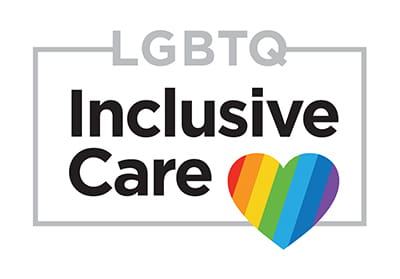Infectious Diseases
Main Line Health’s infectious disease specialists provide diagnosis, treatment and prevention of a variety of illnesses and infections.
HIV (human immunodeficiency virus) is transmitted through the introduction of the virus from one infected person to another, commonly transmitted through unprotected sex (vaginal or anal) and exchange of bodily fluids, including:
Aside from sex, the virus is spread through sharing of needles (intravenous drug users), and mothers passing it on to children during pregnancy or breastfeeding.

Risk of HIV infection also varies in different people given different behaviors. The two highest risk behaviors for being infected with HIV are:
When not treated, the HIV virus causes AIDS (acquired immune deficiency syndrome). In developing countries like the United States, most people with HIV do not progress to having full-blown AIDS because of the availability of antiretroviral medication.
The only way to diagnose HIV is with a blood test. A test will not indicate HIV, but will show positive for the specific antibodies that fight against the virus. If you are diagnosed with HIV, your doctor will explain what the results mean and help you understand your options for treatment.
There are three distinct stages of HIV, although most people treated in the United States never reach the advanced stage. If you are treated for HIV early and you regularly take your medications, you can live a long and healthy life.
The first stage of HIV infection is within the first two to four weeks of infection with the HIV virus, during which time you may have no symptoms, or you may experience severe flu-like symptoms, such as:
During this time, HIV is highly transmittable because of the amount of the virus in your system. If you are aware of being infected or suspect you may have been, be sure to see a doctor right away to get tested. You can also take precautions during this stage, such as practicing safer sex or not having sexual contact, or not participating in any behaviors that put others at risk.
At Main Line Health locations throughout the western suburbs of Philadelphia, we welcome LGBTQ patients for testing and treatment of HIV.
The second stage of HIV is called clinical latency or chronic HIV infection. During this period, the virus continues to reproduce slowly and you may not have any symptoms or you may have very few. If left untreated, your disease will continue to progress. However, most people are treated for HIV with antiretroviral drugs and can live well with chronic HIV for many years. During this time, the virus can still be transmitted to others but the amount of virus in the body is less than during the early stage of the disease.
The final and most advanced stage of HIV is AIDS. This is when your immune system has been so badly damaged by the virus that your body can no longer defend itself from common illnesses and other types of infection and diseases such as cancer. Without treatment during the late stages of HIV, a person’s life expectancy may be three years or less depending on lifestyle and other factors.
Main Line Health’s infectious disease specialists provide diagnosis, treatment and prevention of a variety of illnesses and infections.
Learn how Main Line Health occupational medicine specialists offer services for employers to keep their workforce as healthy as possible.